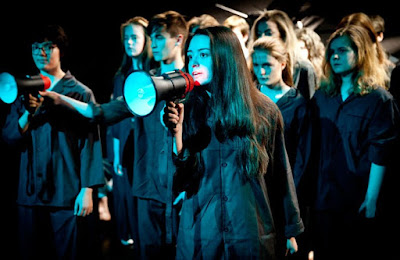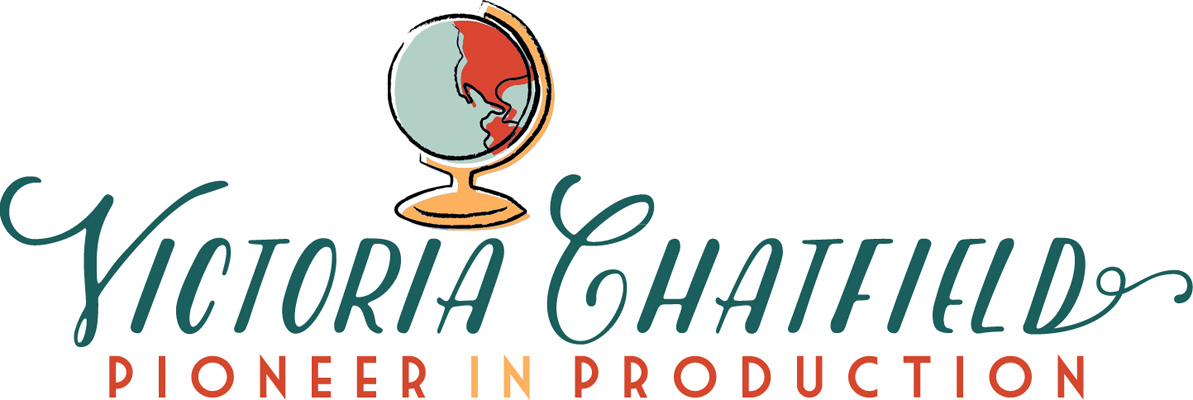In this speech, Ahmed talks about the entertainment industry being in "the business of representation" -- and appeals for public funding to be contingent on the filling of diversity quotas. BAFTA has already made steps in this direction. British film nominees now need to conform to the BFI's Diversity Standards (est. 2014) to be eligible for the awards. The BFI's Diversity Standards are a "three-tick" system that works to increase diversity both onscreen and behind-the-scenes:
1. The film must provide "demonstrable opportunities" for trainees and interns to advance their careers.
2. The film must employ at least two heads of creative departments (like editing, cinematography, etc.) from "diverse backgrounds."
3. The film must feature "characters positively reflecting diversity," with at least 30% of the supporting and background characters representing diverse populations.
Diversity for the BFI encompasses "ethnicity (Black, Asian, and minority ethnic), disability, sexual identity, gender or from a socially disadvantaged background." Films also need to tick at least two of these boxes in order to be eligible for BFI Film Fund lottery funding. While the BFI Diversity Standards are being used at the professional level, I've been doing some research on how youth theatres also ensure appropriate levels of representation.
Last month, I visited Dublin Youth Theatre (DYT) for their weekly workshop (which just happened to be facilitated by Collapsing Horse's Artistic Director, Dan Colley). At the beginning of the workshop, DYT's General Manager provided their members with information about Youth Theatre Ireland's National Youth Theatre, which selects members from the 55 youth theatres across Ireland. Despite their prolific reputation, she explained that only 2-3 DYT members will be accepted into YTI's National Youth Theatre because of their standards for geographic diversity. The National Youth Theatre (headquartered in London) has similar standards, requiring that certain percentages of its membership come from England, Scotland, Wales, and Northern Ireland to ensure representation for the entire United Kingdom.
DYT has its own geographic diversity quotas that they use to form their ensemble. DYT only accepts 35 new students every year (called the First Years), but Second Years (any DYT member who's been around for more than one year) can stay as long as they want -- and even re-join after they've decided to leave. First Year students go through a ten-week foundation course that provides them with a common vocabulary and develops ensemble. After that foundation course, First Years are eligible to participate in all productions and workshops. DYT only accepts a maximum of two students from each Dublin postcode. (Dublin has 24 postcodes in total), which ensures that students are coming from different locations and backgrounds.
 |
DYT doesn't just make sure that they have diversity in their company; they make sure that students from all backgrounds and locations feel comfortable. DYT focuses not only on introducing students to theatre skills but also to each other. Each weekly workshop is followed by a four-hour social event where students have tea and desserts together. DYT wanted students to have a chance to explore their similarities and differences, to get to know each other outside of the structured workshop environment.
Despite the fact that DYT has made diversity an essential part of their work, they're always looking for gaps in their membership. They conducted a study with Youth Theatre Ireland (formerly called the National Association for Youth Drama) in regards to why certain demographics weren't joining DYT, like Black and Muslim students. They found that students coming from more conservative communities felt uncomfortable with DYT's extremely liberal ideology; for these students, working with DYT's trans members, for example, made them feel out-of-place. So DYT decided to gradually introduce these students to both theatre and DYT through outreach programs. Their facilitators went into underserved communities and hosted the ten-week foundation course with students that were exclusively from that community (ex. with an all-Muslim group of students). Sometimes, these communities decided to start their own youth theatres at the end of the course, and DYT committed to helping them with that process. DYT also provided these students with the same resources that official DYT members received (college recommendations, training opportunities, etc.). DYT invited the youth theatres from these communities to create/exhibit performances in conjunction with DYT, gradually bringing them closer to the DYT community and getting them more comfortable with the existing DYT members. This worked out well because (due to their geographic quotas) DYT didn't have the capacity to accept everyone from the outreach programs at once; however, these students were still able to get involved with DYT through their community youth theatres and were able to gradually filter into DYT if they chose.
 |
The Scottish Youth Theatre (SYT) doesn't use diversity quotas; however, they have a full-time Director of Diversity and Inclusion who uses other methods to make sure that their membership represents all of Scotland. Located in Glasgow, SYT recruits and trains a prestigious National Ensemble of 25 students from across Scotland. While their programming resembles that of their English counterparts (like the National Youth Theatre), their auditions are unlike anything that I've seen in the UK. SYT provides as many opportunities as possible for students to shine during their audition process. Students attend a two-part audition consisting of a group workshop (which assesses students' "creative input, ability to work as part of an ensemble, ability to contribute to group pieces and problem solving") and an individual opportunity to perform their prepared works. Students are asked to prepare in advance:
1. A devised monologue based on a quotation (This year's quotation was: "I'm not running away, I'm moving on" - Irvine Welsh, Scottish novelist/playwright best known for Trainspotting)
2. A scripted monologue of their own choosing
3. An individual skill or talent (like playing a musical instrument, dance/movement, stand-up comedy, acrobatics, etc.)
Youth theatres rarely think about all of the barriers to admission that exist in their programs. Is there a financial barrier (through audition fees, course fees, travel or accommodation costs)? Are there geographic barriers (physical distance from auditions or rehearsals)? Are there experiential barriers (where students need to have substantial knowledge of dramatic works) or socioeconomic barriers (where students need to have access to vocal lessons)? Maybe students can overcome these barriers (ex. auditions where the adjudicators allow "unprepared" students to sing the national anthem a cappella), but are students who have additional resources (ex. students who have vocal coaches who help them select and transpose songs that play to their individual strengths) at an advantage?
SYT intentionally tries to overcome these barriers. They travel to towns and cities across Scotland, so that all students have equal geographic access to their auditions. While many of SYT's National Ensemble rehearsals are in Glasgow, each ensemble member hosts an "away" rehearsal in their hometown, meaning that everyone will need to travel. There's no course fee for participating in the National Ensemble (although students do have to pay for travel and accommodation during "away" rehearsals). And students prepare different types of audition material, so that students who haven't studied dramatic literature (and might not have a comprehensive knowledge of scripted work) can lean more heavily on their devised monologues and individual talents. As previously mentioned, SYT doesn't use quotas (unlike DYT) but instead just looks for students that are "right" for that particular ensemble.
Representation matters. Riz Ahmed argues that lack of diversity in the media drives young adults towards extremist fringe groups like ISIS. "If we fail to represent," he says, "we are in danger of losing people to extremism. In the mind of the ISIS recruit, he's the next James Bond, right? Have you seen some of those ISIS propaganda videos? They are cut like action movies. Where is the counter narrative? Where are we telling these kids they can be heroes in our stories?" Maybe instead of worrying about illegal Muslim Bans at our borders, we should worry about the stories that we're telling our homegrown Muslim youth. Every time they see a film that doesn't feature a Middle Eastern hero (or even a Middle Eastern supporting or background character), we're sending them a message: "Every time you see yourself reflected in the media, it's a message that you matter." If we don't show these students that they matter, it's only a matter of time before they start seeking out groups that do.






No comments